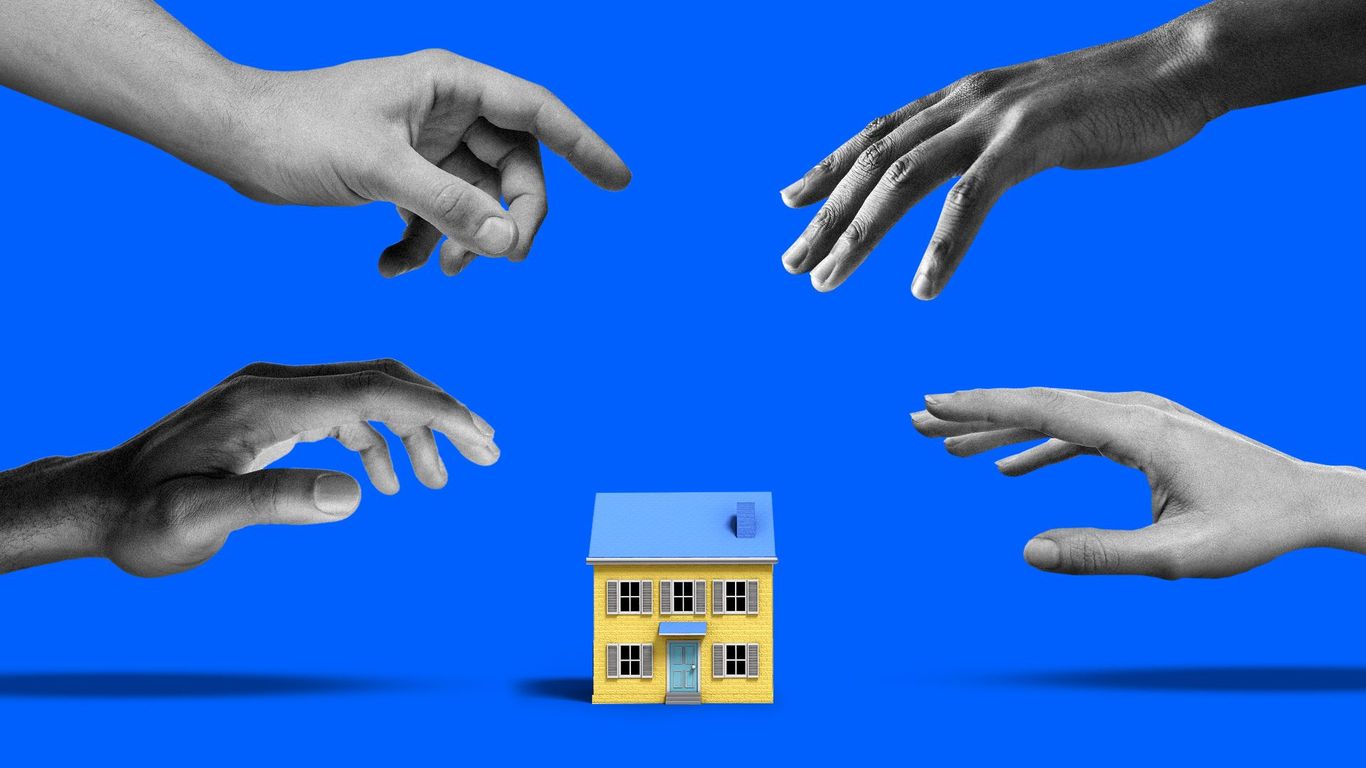We’re also seeing a rapid increase in commercial vacancies with WFH. But there are big challenges and costs to turning commercial properties into residential.
I’ve heard a lot about the problems. Surely there’s some good ideas for a solution out there?



I mean, one good long term solution is either ban or heavily, heavily tax corporate ownership of single family homes. And heavily tax short term vacation rentals. Basically force all the companies that are buying up blocks and blocks of single family housing to sell.
Then, take a look at zoning laws. I have no experience with this side, but they’re probably often a barrier to creating medium or high density housing. Which we’re gonna need a lot of in the near future.
Apparently foreign home ownership is a big issue in Canada, so I have to assume it’s also a (smaller) issue in the US.
Basically, the issue I see is not that there isn’t enough housing. It’s that corporate greed is pricing people out of their neighborhoods and then the houses are sitting empty because they’re barely worth $150k, but the “market” says they can be listed at $400k, and not many people can afford that.
A lot of this comes from the mindset of real estate as an appreciating asset. That drives the desire to buy and hold, because it only ever goes up.
A lot of people here in the US have bought into this as their retirement strategy. The value needs to go up, so they can downsize and ride the leftover cash for the rest of their life. If the number doesn’t go up, they can’t retire. This forces otherwise normal people to become very, very, invested in ensuring real estate is an asset with value that outpaces what people can afford. It’s a ponzi scheme.
Why do you think opportunity cost isn’t coming into play? If you’ve got a house only as an appreciating asset that’s not generating income, you’re losing money compared to just throwing it in the stock market. If they’re just holding it because the value always goes up, that sounds exactly like 08, and the price would have to come down once the bubble pops.
Historically, I think, housing is less volatile than the stock market. So there’s a risk mitigation strategy there that may partly be in play with companies that are purchasing single-family homes and just squatting on them.
This may also be exacerbated by rising interest rates. So companies/individuals that purchased a historically low rates are/may be reticent to sell because they can’t secure a loan with the same rates they currently have. Even IF the housing isn’t actively generating income, it could be losing LESS just due to the rates.
This is all entirely speculation on my part. I’ll freely admit I don’t know.
Can confirm, the interest rates have been a huge deterrent to me for selling my home and moving. My current interest rate is 2.75%, back when I was looking around I was being quoted around 7%, which would have had a significant effect on my monthly payments.
It’s easier to wait out the storm and move when the interest rates (hopefully) recover. They seem to be improved since I last was looking at places, but I don’t think I’ll be abke to get a rate close to what I have anytime soon :(
I see the narrative a lot that it’s caused by people holding onto housing as an investment, and that might be true, but I’m unconvinced it’s anything more than a supply problem. No doubt what you described about people reluctant to sell in the current market is happening, but if a house is truly only worth $150k, it should sell for $150k, and the person trying to sell it for $400k will keep dropping the price until it reaches what it’s worth as the owner gets impatient and has to pay upkeep on it in the meantime. There are stats for how many homes are sitting vacant, but often times I understand that they capture a snapshot in time of when those homes are between owners or tenants, and what was vacant at snapshot 1 may be a totally different sample than what’s vacant at snapshot 2, even though the number of vacant homes remains similar.
Here’s another thing that may be having an impact, but I have no idea how large: a lot of baby boomers are still living in their “forever homes” that they bought decades ago for families that were much larger before their children moved out. So you have a lot of people with proportionally too much house for what they actually need that, to make this topic a bit more morbid, will start dying off in greater numbers as the years go on and freeing up that housing inventory for families that would need that much space.
But, hear me out: HAvE yOU thInK oF ThE LAnDLorD?
With inflation causing rents to go through the roof, houses being bought to be rented is just going to increase even more. I’ve had several houses in my neighborhood sold in the last few months be bought and immediately have “Available for Lease” signs put out.
We need to have something done to de-incentivize the idea of real estate as an investment and treat it like the necessity it is.
Capping rental rates to mortgages is the best solution. Whatever the mortgage is, you can’t charge a penny more than that.
Any tax burden will be passed to the renter without a cap on rental rates.
A use it or lose it policy would also be effective. Rent or sell an unoccupied house or it is turned over to the city council at half tax assessment value.
You need to have teeth, actual losses to encourage them to move.
capping rents to the mortgage means you can only rent out a property at a loss, because you can’t recoup repairs, maintenance, utilities, vacancy, or administrative fees through rent. this effectively makes being a landlord illegal, which you’d might as well do outright if that’s the objective.